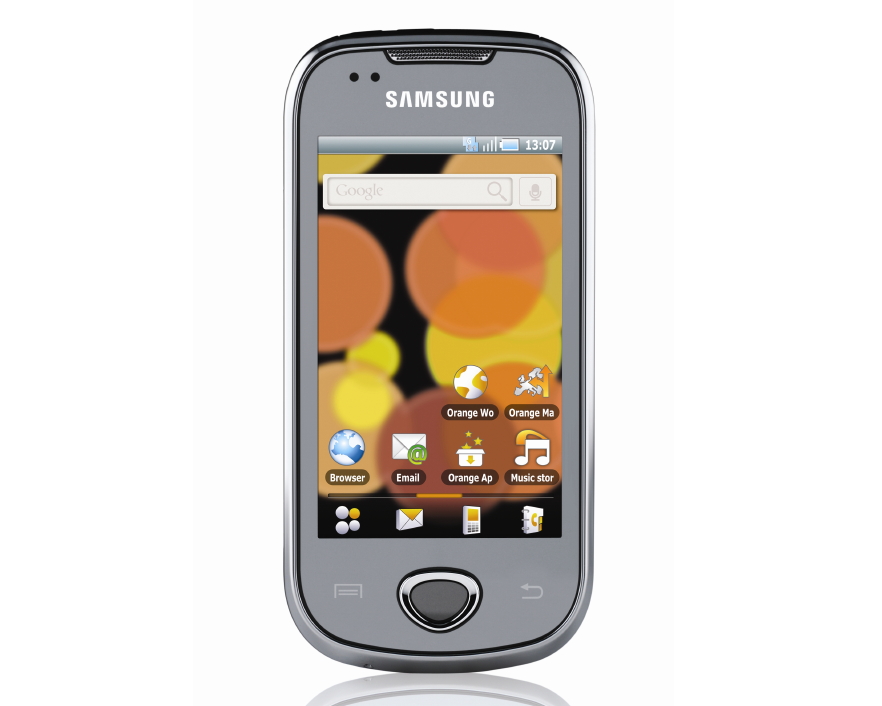TechRadar Verdict
Pros
- +
Extremely responsive screen
- +
Multi-touch zooming
- +
Feature-packed camera
- +
Great media and video performance
Cons
- -
No camera flash
- -
Awful Orange widgets & apps
- -
No trackpad or optical sensor
- -
Low-res video recording
Why you can trust TechRadar
The version of the Samsung Galaxy Apollo we had to review is the Galaxy Apollo i5801 model – which is exclusive to Orange in the UK. Don't confuse this with the regular Galaxy Apollo i5800 – the i5800 version doesn't feature the i5801's fancy silver bezel, but apart from that, they're the same phone, internally speaking.
The newly resurgent Samsung, fresh from the rampant global success of its Galaxy S Android phone, is now scaling down its touchscreen ambitions for those who can't quite stretch to the top-of-the-range phone's tariff demands.
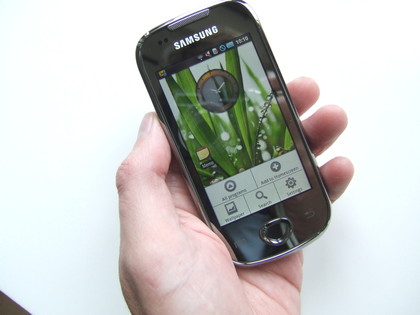
Externally, the Samsung Galaxy Apollo is what you might call a phone of two halves. The back of the handset is a depressingly cheap, contoured slab of unkempt black plastic, with a single hole for the camera (SPOILER: no flash) and an Orange logo. It is not a sexy back.
Thankfully, the front of the Apollo is very stylish indeed, with the entire surface of the phone formed from one piece of glass. There's no plastic bezel here, with the only break in the glass being the hole for the Home button.
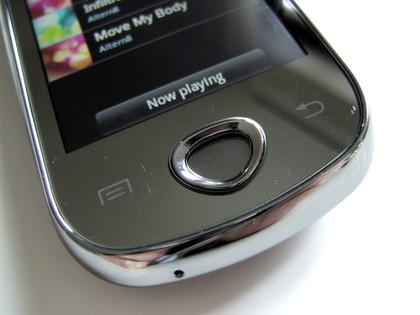
The other two buttons on the front face of the Apollo are the Android standard Back and Menu options, and they're not physical buttons – Samsung has made them touch-sensitive icons that beam out through the silvery surround beneath the glass front.
Thankfully there's a bit of haptic feedback attached to them both, so your presses are acknowledged in a physical manner.
Sadly, the Home button does not function as an optical or physical trackpad – there's no tracker option for gamers here, much like the Sony Ericsson Xperia X10 Mini and Mini Pro.
If you want to navigate through your text messages to correct typos, that has to be done through ultra-precise cursor placement with the touchscreen alone.
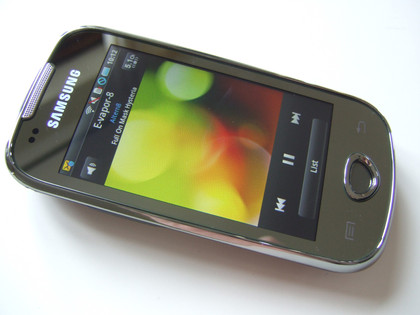
But what a touchscreen it is. The Galaxy Apollo's capacitive screen is amazingly sensitive – in fact it's one of the most responsive we've yet used. A tiny, gentle touch is all you need to register your input, meaning you can be super-precise when required for touch-typing.
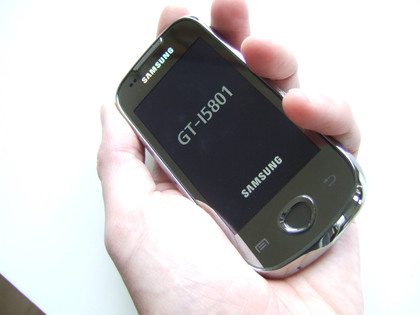
There's a slight downer for us in that the screen surround is backed by a mirrored silver finish, meaning you often catch a glimpse of yourself in the reflection.
But if you don't mind seeing your crumpled face staring back at you when doing your first tweets of the day from bed, it's not a deal breaker. You will spend a lot of time polishing it, though – that finish is a smudge and fingerprint magnet.
Elsewhere, it's a very simple exterior – the USB socket, power button/screen lock and 3.5mm headphone jack sit on the top edge, the volume toggle switch on the left and… nothing else.
There's no physical camera button, with the only other blemishes on the Galaxy Apollo's all-glass front panel being a tiny proximity sensor near the earphone.
It's a classy exterior, as long as you always keep it facing up.
Current page: Samsung Galaxy Apollo: Overview
Next Page Samsung Galaxy Apollo: Interface